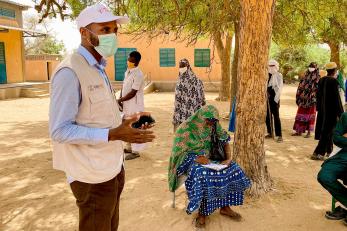How the United States Can Address Global Fragility in a Pandemic

Read the rest at the Carnegie Endowment for International Peace ▸
The coronavirus pandemic is a threat multiplier in fragile and conflict-affected states. Its devastating health and economic impacts already are fueling drivers of fragility and exacerbating ongoing conflicts in places ranging from Afghanistan to Venezuela to Yemen. Yet even as U.S. policymakers continue to learn more about the fragility risks heightened by the coronavirus, they also must mobilize quickly to respond to them. In addition to addressing the ongoing global public health emergency, the U.S. government must marshal its policy tools to address the pandemic’s second-order effects: exacerbated weak governance and state fragility. To do so, U.S. officials should follow five lessons learned in prior public health crises, such as the Ebola epidemic, and from decades of work in fragile contexts.
Build on key existing policy imperatives
Though the coronavirus poses many new challenges for governance in fragile states, not all response measures need to be invented from scratch. Two recent policy initiatives—the Stabilization Assistance Review (SAR) and the Global Fragility Act (GFA)—have advanced valuable thinking and guidance that policymakers should apply.


